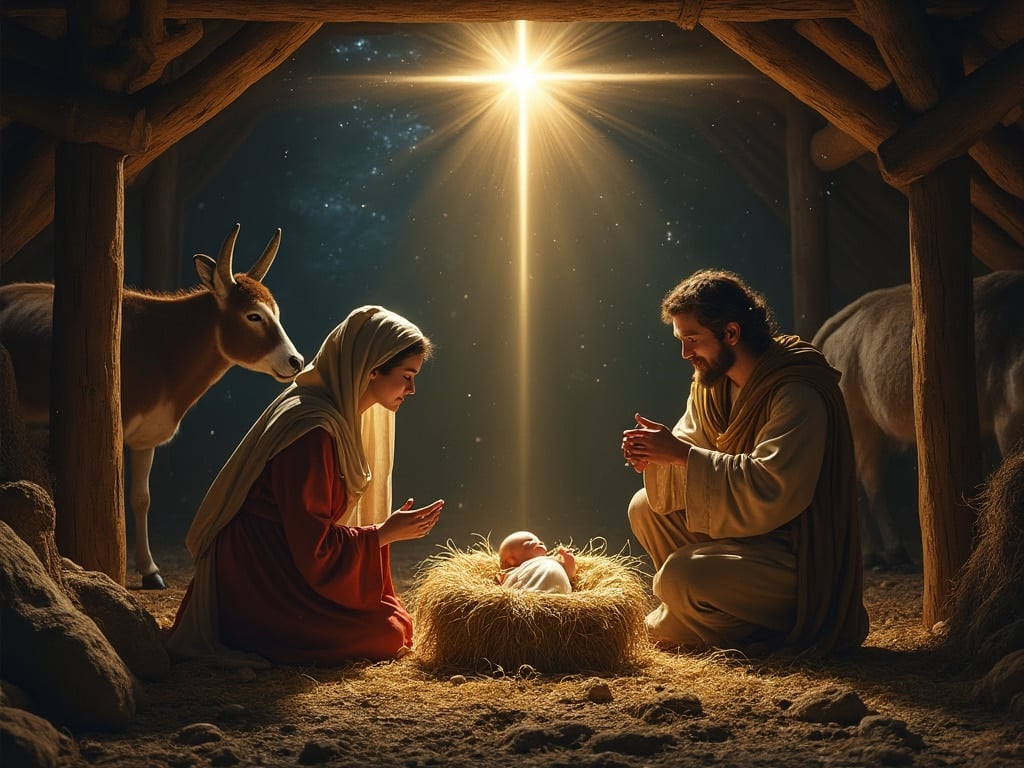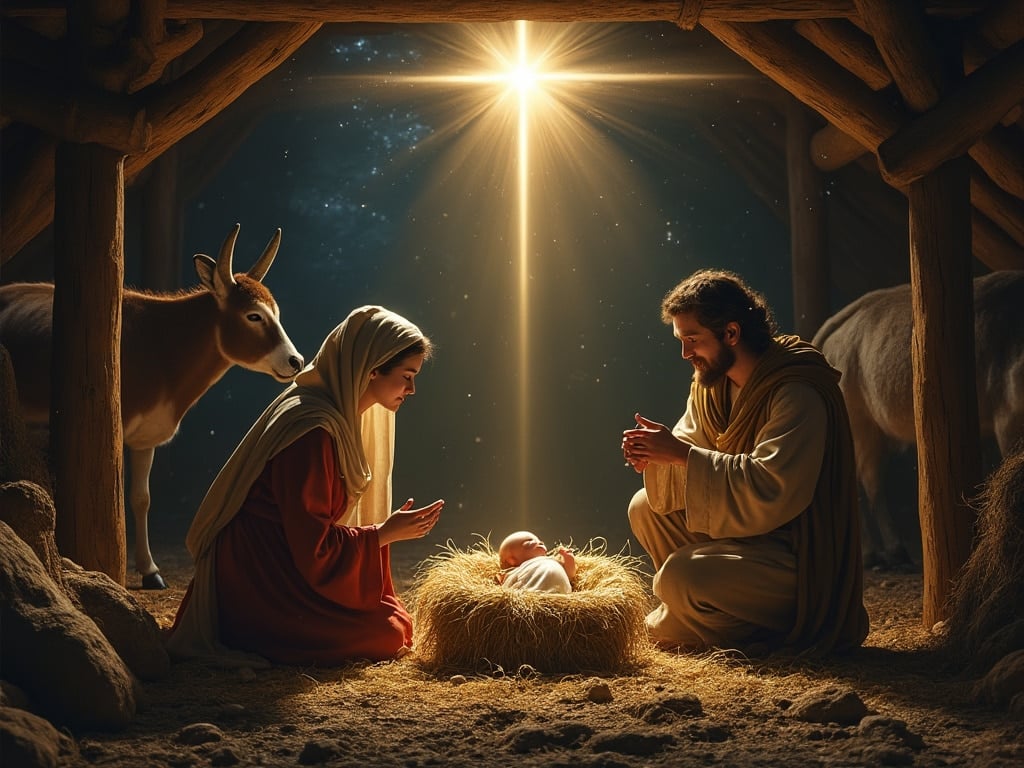Throughout the Bible, we see God’s plan of salvation unfold from Genesis to Revelation. Among the most significant elements of this divine plan is the birth, death, and resurrection of Jesus Christ. His coming was foretold by prophets centuries before His arrival, and His mission was clear: to defeat sin, offer redemption to humanity, and prepare a way for eternal life. In this blog post, we will explore three key Old Testament prophecies about the coming Messiah, how they were fulfilled in the New Testament, why Jesus had to come to defeat sin, and how His death, resurrection, and eventual return offer hope for all believers.
The Prophecies of Jesus

In the Old Testament, the prophets spoke of a coming Savior who would redeem the world and restore God’s kingdom. Three specific prophecies stand out as they point directly to Jesus’ birth and mission:
- Isaiah 7:14 – “Therefore the Lord Himself will give you a sign: The virgin will conceive and give birth to a son, and will call him Immanuel.” This prophecy, written by the prophet Isaiah, speaks of a child born to a virgin, a miraculous birth that would signify the presence of God among His people. The name “Immanuel” means “God with us,” a powerful reminder that the coming Messiah would be both fully human and fully divine.
- Isaiah 9:6 – “For to us a child is born, to us a son is given, and the government will be on his shoulders. And he will be called Wonderful Counselor, Mighty God, Everlasting Father, Prince of Peace.” Isaiah 9:6 is a vivid description of the Messiah’s divine attributes and the authority He would possess. This child, who would be born in humble circumstances, would carry the weight of the world’s sins on His shoulders and bring peace and justice to the nations.
- Micah 5:2 – “But you, Bethlehem Ephrathah, though you are small among the clans of Judah, out of you will come for me one who will be ruler over Israel, whose origins are from of old, from ancient times.” The prophet Micah foretold that the Messiah would be born in Bethlehem, a small town in the region of Judah. Though insignificant in size, Bethlehem would become the birthplace of the King of Israel, whose reign would be eternal.
These prophecies, written hundreds of years before Jesus’ birth, laid the groundwork for the understanding of the Messiah and His mission.

Why Jesus Had to Come to Defeat Sin
To fully understand the significance of Jesus’ coming, we must first understand the problem of sin and how it originated. In Geneses chapter 1, God created everything and He said everything was good. No sin, no death, no evil…everything was good. Then we read about Adam and Eve in the Garden of Eden. God created them in His image and gave them the responsibility to care for the Earth. They were given one command: not to eat from the tree of the knowledge of good and evil.
Genesis 3:6 tells us, “When the woman saw that the fruit of the tree was good for food and pleasing to the eye, and also desirable for gaining wisdom, she took some and ate it.” Eve’s decision to eat the forbidden fruit, and Adam’s subsequent disobedience, led to the fall of humanity. Sin entered the world, and with it came death, separation from God, and the curse of suffering.
From that moment on, humanity was enslaved to sin. No matter how hard they tried, no one could live up to the perfect standard set by God. Sin separated humanity from their Creator, and the penalty for sin was death (Romans 6:23). In Genesis 3:15, God spoke a prophecy that pointed to the eventual defeat of sin: “And I will put enmity between you and the woman, and between your offspring and hers; he will crush your head, and you will strike his heel.” This verse foreshadowed the coming of a descendant of Eve, a man who would one day crush the serpent (Satan) and bring victory over sin and death.
Jesus Christ was that promised descendant. He came to defeat sin by living a perfect life, fulfilling the law, and offering Himself as the ultimate sacrifice for sin. He bridged the gap between Heaven and Earth as the only one who could take sin away for those who accept that free gift. (John 3:16)
The Birth of Jesus: Fulfillment of Prophecy

In the New Testament, the birth of Jesus is presented as the fulfillment of the Old Testament prophecies. Matthew 1:18-25 recounts the miraculous conception and birth of Jesus:
“This is how the birth of Jesus the Messiah came about: His mother Mary was pledged to be married to Joseph, but before they came together, she was found to be pregnant through the Holy Spirit. Because Joseph her husband was faithful to the law, and yet did not want to expose her to public disgrace, he had in mind to divorce her quietly. But after he had considered this, an angel of the Lord appeared to him in a dream and said, ‘Joseph son of David, do not be afraid to take Mary home as your wife, because what is conceived in her is from the Holy Spirit. She will give birth to a son, and you are to give him the name Jesus, because he will save his people from their sins.’ All this took place to fulfill what the Lord had said through the prophet: ‘The virgin will conceive and give birth to a son, and they will call him Immanuel’ (which means ‘God with us’). When Joseph woke up, he did what the angel of the Lord had commanded him and took Mary home as his wife.” (Matthew 1:18-25)
This passage clearly references Isaiah 7:14, showing that Jesus’ birth fulfilled the prophecy of a virgin giving birth to the Messiah. The name “Jesus,” which means “the Lord saves,” reflects the very purpose of His life: to save humanity from sin.
Luke 2:1-20 gives a detailed account of Jesus’ birth in Bethlehem. The Roman emperor’s decree for a census led Mary and Joseph to travel to Bethlehem, where Jesus was born in a humble stable. The angelic announcement to the shepherds declares the good news:
“Today in the town of David a Savior has been born to you; he is the Messiah, the Lord. This will be a sign to you: You will find a baby wrapped in cloths and lying in a manger.” (Luke 2:11-12)
This passage highlights the fulfillment of Micah 5:2, as Jesus was born in Bethlehem, the city of David, as foretold by the prophet. The shepherds’ immediate response was to go and find the baby, glorifying God for the fulfillment of the prophecy.
Matthew 2:1-12 tells the story of the Magi, who traveled from the East to worship the newborn King. They followed a star that led them to Jesus in Bethlehem, where they presented gifts of gold, frankincense, and myrrh. This event is a reminder that Jesus’ birth was not only a fulfillment of Jewish prophecy but also a sign for all the nations.
Jesus’ Death, Resurrection, and the Promise of His Return

The ultimate purpose of Jesus’ life was to defeat sin by dying on the cross as the perfect sacrifice for humanity’s sins. As the Bible teaches, Jesus was without sin, yet He took on the sins of the world and bore the punishment that we deserved. As the apostle Paul writes in Romans 5:8, “But God demonstrates his own love for us in this: While we were still sinners, Christ died for us.”
Jesus’ death on the cross provided the way for humanity to be reconciled with God. His resurrection three days later proved His victory over sin and death, offering eternal life to all who believe in Him. Jesus’ death and resurrection fulfilled God’s promise to defeat sin and restore the broken relationship between humanity and God.

But the story doesn’t end there. Jesus promised that He would return one day to judge the living and the dead. In Matthew 24:30-31, He says:
“At that time the sign of the Son of Man will appear in the sky, and all the nations of the earth will mourn. They will see the Son of Man coming on the clouds of the sky, with power and great glory. And he will send his angels with a loud trumpet call, and they will gather his elect from the four winds, from one end of the heavens to the other.” (Matthew 24:30-31)
As believers, we are called to be ready for His return. Jesus’ return will bring ultimate justice and the establishment of God’s eternal kingdom. Until that day, we are called to live faithfully, sharing the good news of Jesus’ sacrifice, resurrection, and the hope of His return with others.
Conclusion
The birth of Jesus fulfilled ancient prophecies and revealed God’s great love for humanity. He came to defeat sin, offering redemption and eternal life through His death and resurrection. As we look forward to His second coming, we are reminded to live in readiness, sharing the hope of His return with the world. Jesus’ coming, His sacrifice, and His promise to return are the foundation of our faith and the source of our hope.
Thoughts to consider…
(I strive to encourage my readers to reflect on my writings and consider how they can apply the ideas to their own lives)
- How do the Old Testament prophecies about the Messiah, such as Isaiah 7:14, Isaiah 9:6, and Micah 5:2, strengthen our understanding of Jesus’ identity and His purpose in coming to earth?
- What does Jesus’ death and resurrection mean for believers today, and how should this impact the way we live as we await His promised return?
- In what ways can we actively prepare for Jesus’ second coming, and why is it important to live in readiness for His return?
If you want to know more about how to be saved and become a Christian, please click below and email me to let me know!




